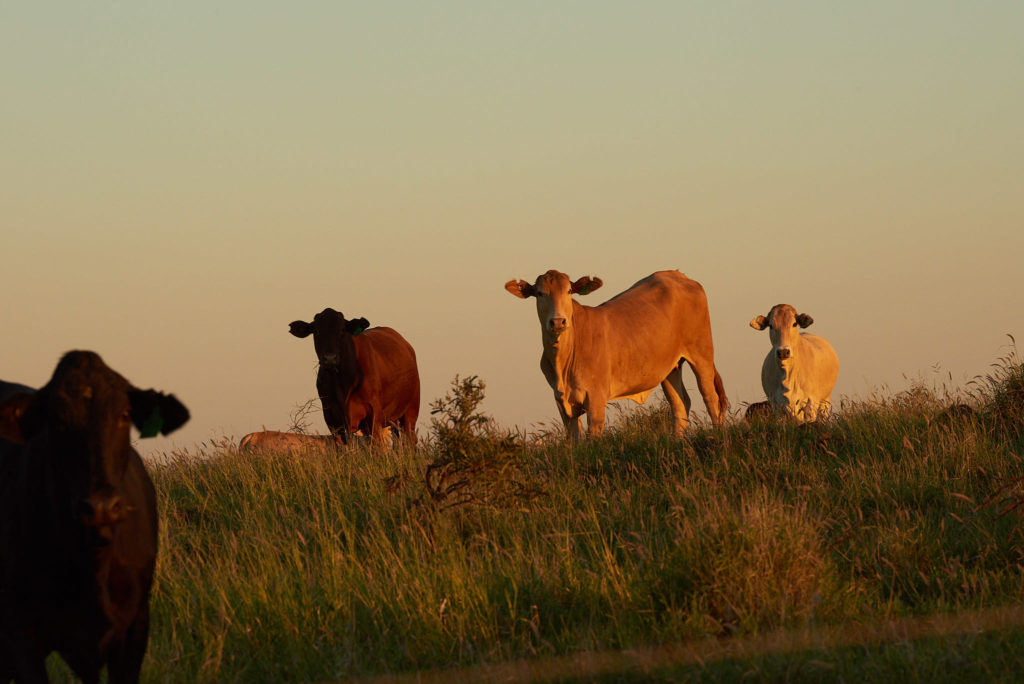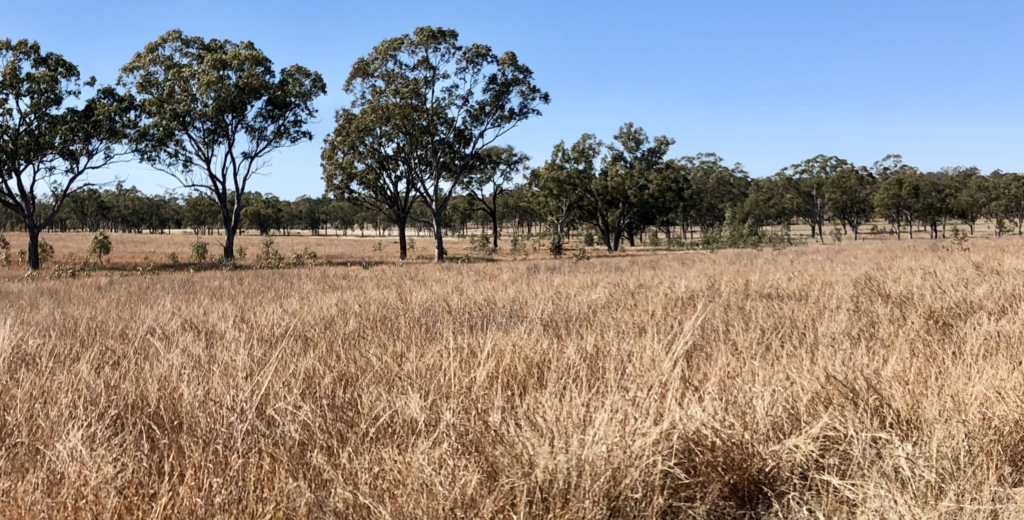Q&A with Nick Bonifant, Executive Director & CEO, Packhorse

Nick Bonifant grew up in a small town called Biloela in Northwest Queensland. His father was a Jackaroo and a butcher, and while his life’s journey led him away from the land, Nick’s role with Packhorse is taking him back to his roots.
We caught up with Nick to discuss his background, the unique Packhorse investment offer, and his unwavering commitment to creating a balance between commercial enterprise, and social impact.
Q: You have a background in social impact funds management – can you explain what inspired your journey?
I initially followed my father’s footsteps into property, and also completed an accounting degree. But after a close friend was diagnosed with Multiple Sclerosis, I started up Youngcare, along with three friends, a not-for-profit charity creating choice for young people with high-care needs.
At the time our friend was 28 years old and the only place she could be cared for were aged-care facilities. We undertook some research and approached Wesley Mission who confirmed at the time there were over 6,500 young people in aged care – it just wasn’t right. Thanks to donated land, we built a house for our friend. We had so much support, 3,000 people got involved, the whole building was essentially donated.
That year, we went on to raise $9m and built 16 apartments.
“The Youngcare experience changed my view on the world, and showed how commercial objectives can be aligned with social objectives not at the expense of them”.
After stepping down from a day-to-day role at Youngcare, I formed Eighth Gate, a funds management business investing in the manufactured housing sector, offering affordable home ownership to seniors and a chance to live in privacy and dignity while enjoying a lifestyle in a place that they loved.
The most enjoyable part of this business was looking after and connecting with the residents and this formed our ‘people first’ culture. When the business was sold, we had $150m under management, 100 staff and 11 villages that were home to 2,500 residents.

Q: What are your ambitions as CEO for Packhorse – what does success look like to you?
Personally, I’m 100% aligned with the Packhorse vision, that’s my ambition: To build the greatest land custodian, land restoration and beef supply chain business in the world.
It’s a grandiose statement, but it can be done.
“And we’ll succeed by creating a culture of humility, honesty and hard work.”

I believe that when you combine these three elements with an avid curiosity and a desire to learn, great things can happen.
We’re all on this planet to learn and right now, the facts are indisputable as to the damage we have done through economic pressures and trying to meet demand for food and services at all costs. The environment has suffered and the time is right for action to restore Australia’s rural landscape.
Q: Are you able to explain, in simple terms, the investment opportunity Packhorse offers?
Packhorse provides the opportunity to invest directly into property, in an alternate asset class and a non-correlated space, away from commercial, retail and industrial property sectors.
“An investment in the Packhorse Pastoral Company isn’t connected to global events, or to sentiment – it’s stable, and it has a long history of strong capital growth.”
The Packhorse offer has a strong thematic behind it; food supply, environmental impact and climate change.
Essentially, we’re giving people an opportunity to buy into a business which will have a positive impact on the climate and our environment. The Industrial era was highly competitive and we lost sight of how important it is to retain balance between commercial endeavours and social good.
Packhorse is bringing the balance back to our properties.
Q: Are you able to take us through the investment journey?
The first thing we do is seek out and purchase ‘turn key’ cattle properties off market, not at auction.
We look at aggregating those properties with other properties in the general area – to simplify the operation and also build economies of scale so we can increase production, using less equipment.
Next, we baseline the pastures and soils so we can accurately measure improvements and overlay our regenerative practices. This includes livestock grazing density that significantly increases the number of cattle we are able to manage on each property.
The last phase is the capital growth – our acquisition mandate includes buying in areas with a minimum of 450 mm rain fall, outside the tick line in Queensland and New South Wales. And for those reasons, where the soils allow, we’re able to sequester carbon, which gives us a potential new income stream. In an immature market, we’re not trying to quantify it, but we’re saying that the upside could give our current target returns of 8-10%, a significant boost.

“We’re aiming to sequester a tonne of carbon per ha per year in the soil”.
Packhorse wants to be a thought leader. We are building best practice and excellence into everything we do. And we want to share that knowledge.
Q: You talk about creating a movement in ethical investing, in your opinion, why is this important?
The time for this conversation is now, it has never been more important. And what we’re finding is that people are really standing up and listening, there’s not one person I’ve met who doesn’t acknowledge that climate change is a major concern.
But whether you believe in climate change or not, it’s where the global focus and the money is going. Looking at Europe and the United States, Governments are asking – is your product emission free or what is it going to be? What’s your target? How are you going to get rid of your emissions? And if it’s not, we’re going to tax you and use that tax to offset your emissions.
Q: You’re coming to the end of your first capital raising offer. Tell us about the key highlights for you and how the Packhorse Pastoral Company investment has been received within the investment space.
It’s unbelievable. Since our launch in May we have received excellent media coverage which has resulted in overwhelming enquiry. The investment community is reacting very positively to our thematic – they love the environmental aspect and then, when we go through the data and the models, they see the potential. But what attracts them to this opportunity first is the environmental impact.
“People are ready, and they’re listening.”
Q: Tell us about Stuart’s Creek – what makes it a great investment opportunity?

Packhorse has an acquisition mandate, and Stuart’s Creek is a perfect fit with 8,360 hectares of premium pastoral land with good water sources and grass cover. The raw material is sound and we can see a lot of potential for further improvement without the need for major capital outlay.
Q: The techniques and methods that Packhorse uses are centuries old, are you able to describe how some of them work?
“What we are doing is bringing back the biodiversity that had been destroyed”
Often, we inherit properties that have sustained a mono culture, which means the pasture composition is predominantly one species. This deprives soil of the vital microorganisms needed for nature to perform its regenerative cycle.
Our property managers assess and baseline each pasture individually and then sow multiple species of grasses, plants and legumes as required, to achieve optimal biodiversity.

Livestock grazing density assists the regenerative process, as the cloven hooves of the beasts break the surface crust and lay litter on the surface.

The growing plants support the soil microbiome with sugars as their energy source and the decaying vegetable matter feeds other organisms, all forming part of the carbon cycle.
The benefits are manifold. We’ve already seen the evidence across the private portfolio we manage. Richer, looser soils with better water infiltration, pastures that have higher nutrient value for cattle resulting in expedited weight gain. Additionally, we are very confident that through baselining and measurement of carbon sequestration in our soils, we will assist in carbon dioxide emission reductions.
Q: In your opinion, why have we strayed so far away from what is beneficial for the land in our agriculture practices?
As humans we tend to go after the low hanging fruit, we do what’s easiest, and as things get harder we adapt.
“The world’s population doubled in the last 50 years to 7.7 billion today. With the same amount of land, ocean and fish and cattle – but double the amount of people to feed.”
The demand for food has caused us to take our eye off the ball, and not treat nature the way in which it should be.
Luckily the scientific knowledge that we have now is vast. At Packhorse, we are using science and technology combined with traditional farming practices to re-educate ourselves and revert the degradation that has affected our rural landscape. We are bringing back the balance.
“It’s just a wonderful story – you look after nature and it’ll look after you, the business case is just amazing.”
Q: Can you describe the experience and expertise of the Packhorse team? How would you describe the Packhorse culture?
We’re building a diverse team from all backgrounds; custodians of the land and avid observers.
We have a wealth of funds management expertise along with the best property and land managers in the country.
It’s phenomenal the difference they’re reporting when the Packhorse regenerative model is applied to our land under management.
Many of our property and cattle managers have been born and bred on the land, it’s all they’ve ever known. They’re particularly passionate about the regenerative story, and they share the Packhorse vision to build the greatest land restoration and beef supply chain business in the world.
Q. What’s next?
The Packhorse team is actively negotiating a pipeline of agricultural properties between Coonamble in New South Wales and Taroom in Queensland ahead of the next round of funding in September 2021.
IMPORTANT: The information on this webpage is general information only and does not take into account the objectives, financial situation or needs of any particular person. An investment in Packhorse Pastoral Company (Australia) Limited (Packhorse) is subject to risk and is restricted to sophisticated investors. Applications to invest in Packhorse must be made on an application form attached to or accompanying the information memorandum for the offer. Investment decisions should not be made upon the basis of past performance achieved by Packhorse. Past performance is not a reliable indicator of future performance. No person, company or entity makes any promise or representation or gives any guarantee as to the performance or success of Packhorse, the repayment of capital or any particular rate of income or capital return. To the extent permitted by law, Packhorse and its associates, and any of their directors, officers, employees, representatives and advisers are released from any liability (including, without limitation, in respect of direct, indirect or consequential loss or damage arising by negligence or default) in relation to any anything contained in, or omitted from, this webpage.
